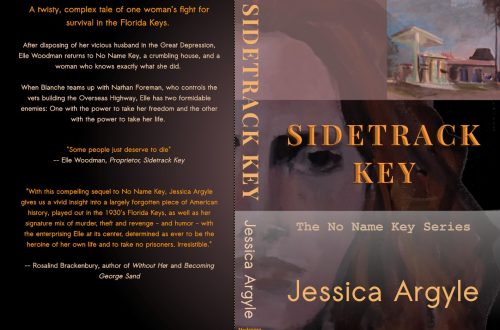If you have the humility to accept criticism you may be willing to actually hire someone who has a clue. Indie authors have been accused of being the worst offenders when it comes to bad grammar, but traditionally published books are rapidly catching up. Perhaps it’s the lack of money in the trade, the decline of mid-sized publishers, but I cannot believe the sloth I have read from publishers who should (and claim to) know better. I think it is a mistake to believe that the publisher will do the job. I have always been told to have the piece professionally edited BEFORE sending it out, even to your agent, and certainly to a publisher.
I am still shocked by how many books contain misspellings, grammatical errors, convoluted passages, because this is an easy fix and the one genuine opportunity to get good solid feedback from people who do not necessarily like you – and I don’t mean family. They should, of course, wish you well, but liking you is optional and may actually hinder honest opinion about the work.
This is my ode to Harry Dewulf of Densewords and Laurie Skemp of Book Editing Pro, independent editors, my dynamic duo and secret weapon.
Harry Dewulf of Densewords is a content editor. He tells me things about my story that I didn’t know; where it succeeds, where it fails and why and how to fix it, amongst other things. When I asked him what category he thought my novel was in, Harry told me that I had written a suspense novel with feminist underpinnings and when I asked him why, he said “because women are generally portrayed as being passive but in No Name Key, Elle is the gardener and not the garden” and I knew I was hooked on Harry. I never would have known this and sometimes when a piece of information like this comes to light it has the power to shape the final edit. Although he doesn’t mention it much on his blog, he understands categorization, reader expectations and the complex universe of publicizing the work. Harry says that he “likes to see about 10k words from the middle of the ms, and I sample edit about 3k, free of charge.” Query him at harrydewulf@densewords.com
Then the manuscript goes to Laurie Skemp, my take-no-prisoners grammarian. Laurie will proffer her opinion when asked and her opinion is a learned one. She comes from a long line of editors. Here’s a sample of what she emailed me when I asked her if she actually “liked” an earlier version of No Name Key:
“The story was good, but honestly, I think parts of it could have been developed more to draw in the reader, and some of the narratives (especially when she is by herself, deciding how to get rid of Billy’s body when she returns from the trip with Jim) were repetitive, especially when she can’t bring herself to properly dispose of Billy’s body.”
Although it was upsetting to get this because I thought I was done with the novel, I suspected that she was correct and after sulking for a day or so, I was smart enough to actually listen to what she had to say. In the end I was grateful for her honesty.
What Laurie does best is a line by line edit of the entire manuscript, sniffing out everything from capitalization errors to punctuation to tense shifts and so on. I have hired other editors and one actually missed a protagonist name change midway through a short story, so finding a good editor is a major accomplishment. And if you want to judge the quality of her work, request a five-page free sample edit at laurie@bookeditingpro.com
There is nothing better that the luxury of discussing your story with professionals who know what to look for. And because I pay for the privilege, their time belongs to me. And because they have integrity, their thoughts are considered and honest. They want the best work from me. The most precious gift a writer will ever receive is intelligent attention from someone with the ability to discern good from bad work and who will let you know. And their rates are beyond competitive.
The money: Aside from about $250 I recently spent on a modest promo campaign, editing services were the only other expense. I absolutely refuse to hand over rights to my work to a publisher who will do a far worse job that this when these resources are easily accessible, once you know where to look.
Not gonna lie – there is a learning curve, but once done, you are rewarded with eternal and sole control over your own work, something incredibly delicious. I can also set the price and time the promotions.
For example, I have just received a fantastic blurb from T.D. Allman author of Finding Florida.
Here’s what he wrote about No Name Key,:
“In this book you learn trees as well as mean men and hurricanes can kill you. Elle, the book’s protagonist, is as tough and amoral as the crabs that crawl and consume their way through Jessica Argyle’s narrative. As one particularly startling gustatory scene demonstrates, that’s not all she has in common with the crustaceans. One blustery night in France, I read No Name Key, cover to cover, glad I’d locked the door and closed the shutters.”
Am I pleased. Oh boy! But the point is – even the very generous TD Allman may have dashed the book to the ground if I had been disrespectful to ask him to spend his time reading a badly edited novel. Don’t miss out because you get stingy at the finish line and end up with something you are not proud to show.
Because No Name Key, belongs wholly to me, I can go into my Amazon dashboard and add the endorsement whenever I please. Ditto for the paperback version. I can go back into my CreateSpace dashboard and rearrange the back cover to accommodate the new and coveted line to add gloss to the book. Just try asking your publisher to do this for you. How long do you think that would take?
When I wrote No Name Key, the first order of business was not to embarrass myself. I have a longtime horror of public humiliation and the least I could do after the huge effort of writing the piece is to make it readable. I actually get pissed off enough to stop reading when a writer fails to take this step. It’s a little like inviting someone over to sleep on soiled sheets, then leaving a turd in the toilet.





Fitting homage to professional editors, whose services are not sought out often enough. NO NAME KEY is a classic example of a well-edited novel. Other indie writers should take note.
Final sentence is not needed to make the point.
Thank you, Jessica, for them kind words. When it comes to the copy editor, since I started recommending Laurie, I haven’t looked for anyone else. She has an authority that arises from scrupulous consistency, that gives the author that warm glow of knowing that what they did wrong, through ignorance or inattention, Laurie will find and put right, like a wronged gunslinger in a John Ford movie.
Is that a trophy simile in that final sentence that Mike thinks is redundant? Not quite (for comparison, the one in my previous paragraph definitely is). The hint is in “public humiliation” – your fear of this tells the reader that writing something is personal, and the simile introduces the abstract metaphor that asking someone to read your book is like inviting them into your home – forms an analogy between the personal and personalized space of your home and the personal imaginative space that is that part of yourself that you put into your book. With a critical eye, I’m interested in looking at how your home is not like your novel, because I think it ties in very nicely with what you say.
Your home is essentially your space. You have it arranged as you like it, and most people expect a guest to, to some extent, adapt to your tastes and preferences when in your home. However you extend certain universal courtesies to a guess, such that even if you like to sleep in soiled sheets and seeing a turd in the toilet-bowl, you know that most other people don’t, so you make the small concession of freshly laundered sheets and a clean bathroom.
Whereas your guest is a visitor to your private space, your novel is part of yourself, thrust out into a public space. It’s curious, nonetheless, that the analogy of a guest in your home feels right. It could be because many people, when reading, feel like they inhabit the book. And writers should do everything they can to ensure this sense of habitation is not awkward. That there are no peas under the mattress.
Oooh. Nice metaphor for good spelling, grammar and punctuation! Just thought of it while writing this. And wrote it in a sentence fragment, too. Hurrah for iconoclasm. I’m now wondering if it helps the creative process that the priorities of your two editors are quite different?
Typical Harry. The comment is better than (and an illumination of) the post.
And yes – the order that I find most useful is to go to Harry for the initial read and major fixes when the manuscript is finished, but some questions and concerns remain. When these issues are resolved, Laurie finely polishes the work.
Great information, Jessica. Just the push I needed. I’m ready to taste the free sample. And an outstanding review from T.D. Allman for No Name Key.
Many thanks, Jessica. It’s a true pleasure working with you. Sorry for the late response to your kind words, but you know “how it goes” here for me on the Gulf side.
You “hit the nail on the head” (as my father used to say)…the book and creation is yours, and yours alone. The primary purpose of the editor is to help the author present his or her work in “proper English” so the story is told with clarity, conciseness, continuity, and coherence. The reader will then have an “enjoyable read” and not put the book down in disgust (speaking from experience here!) The editor should not criticize the work but should analyze the writing style and tone of the author and the manuscript, and help him or her capitalize on the talent that is used to put the words on the page.
Self-publishing allows you the freedom to present the book as you want it to be presented, not how someone else thinks it should be presented. But it does have a slight negative side–the market is now flooded with $0.99 books people put out there so they can call themselves “authors”…not exactly true. They might be writers, but they are not authors. An author is someone that will expend the time, the effort, and possibly the few extra dollars needed to make the book the best it can be. To paraphrase Hemingway, he or she does not want all the blood that has been shed over the typewriter to be for naught.
I love the blog. It makes me want to visit the Keys again…it’s been a few years. I might surprise you when I have time to make the six hour drive…